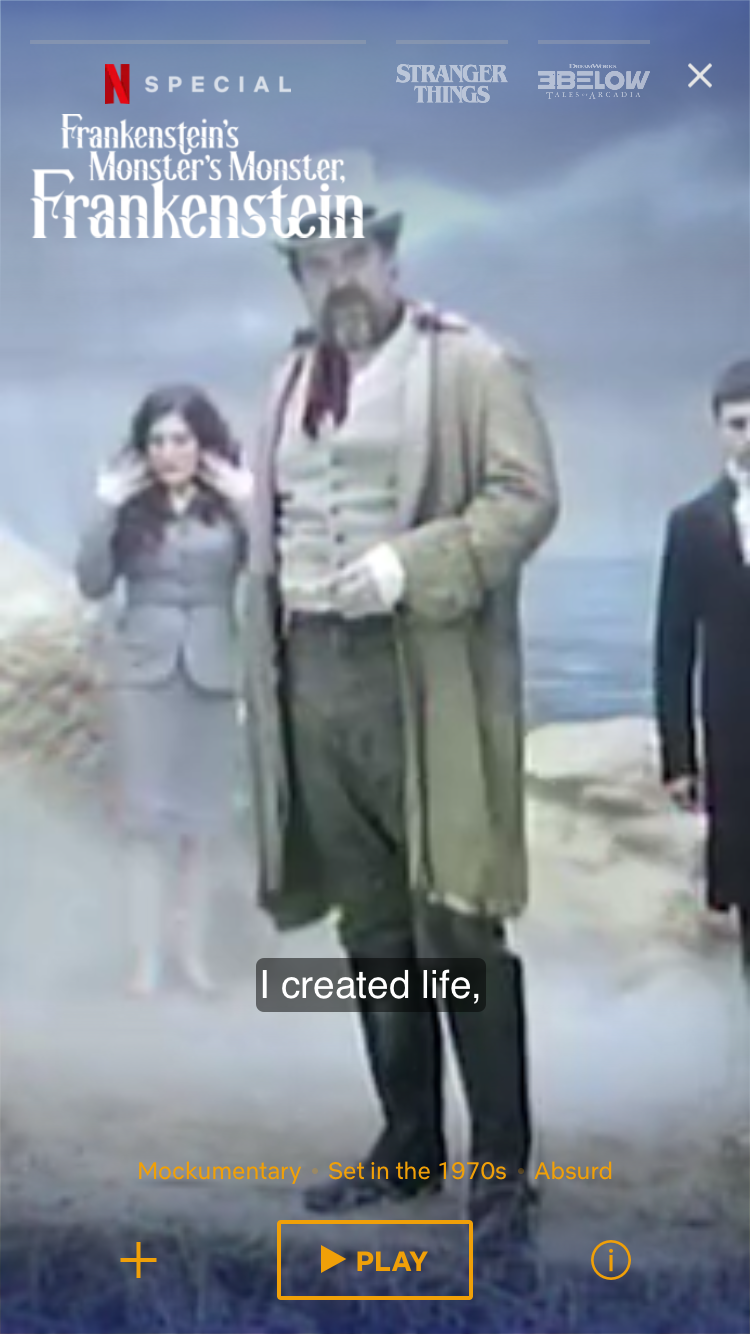 Frankenstein’s Monster’s Monster, Frankenstein
Frankenstein’s Monster’s Monster, Frankenstein
The title of this Netflix mockumentary was enough to intrigue me. I saw David Harbour posting about it on social media, I saw the trailer on Netflix, and I knew that this was one of those weird films I just had to see. Directed by Daniel Gray Longino, it is a bizarre story within a story in which we watch an old televised play staring David Harbour Jr. (David Harbour), while David Harbour III (also played by David Harbour) seeks information about his father’s acting legacy.
Although, on the surface, this short film is a mockumentary about the acting career of Harbour’s father, the story is actually more about acting itself. With constant references to Anton Chekhov and Juilliard, it soon became clear to a theatre nerd like myself that this mockumentary was a satire about actors and acting, rather than the legacy of a single actor. And if these references weren’t enough, each of the characters in the televised play has a line or even a monologue in which they describe what acting is. (Also, I’m sure I’m not the only viewer who did this, but I googled David Harbour’s father – he is not, in fact, an actor. This does not surprise me at all.)
Now, a “bad” televised play framed within an almost equally “bad” documentary may not seem appealing at first, but something about this mockumentary just really works. I think part of what I enjoy the most about this short film is the fact that so much effort went into making this a “bad” film. The acting is “bad”, but intentionally so. The editing is “bad”, but the abrupt cuts always seem to happen at the right moment. The story is “bad”, but it makes the televised play feel more realistic in the sense that someone could have actually tried to put on this absurd performance. And in the play, there is a door that never closes properly on the set; whenever it opens, it is always in the background of the shot as if to add to the “bad movie” feel. This “accident” is clearly intentional, as are the other “bad” decisions made by the creative team behind this mockumentary. It is clear that a lot of thought went into what would make for a believably bad play.
I feel like the length of the film was also well thought out. As a (roughly) 30 minute film, it is the perfect length for a project like this. The timing and structure (i.e. “commercial breaks”) make this mockumentary feel like the kind of thing you would stumble across on television – a standard half-hour special about a long-forgotten actor. And given that this piece is set up as a “bad movie”, half an hour is a tolerable length of time. It is long enough to get the message across, but not so long that it starts to become boring or unbearable to watch.
Films like this are one of the reasons why I love Netflix. This is the kind of passion project that would probably not survive if it ever tried to make its way into theatres or onto television. But Netflix is a great way to discover things you may never have stumbled across on other forms of media, and I applaud Netflix for backing this project and others like it. I absolutely love when I find these kinds of hidden gems on Netflix and I hope others will enjoy this strange mockumentary too.



